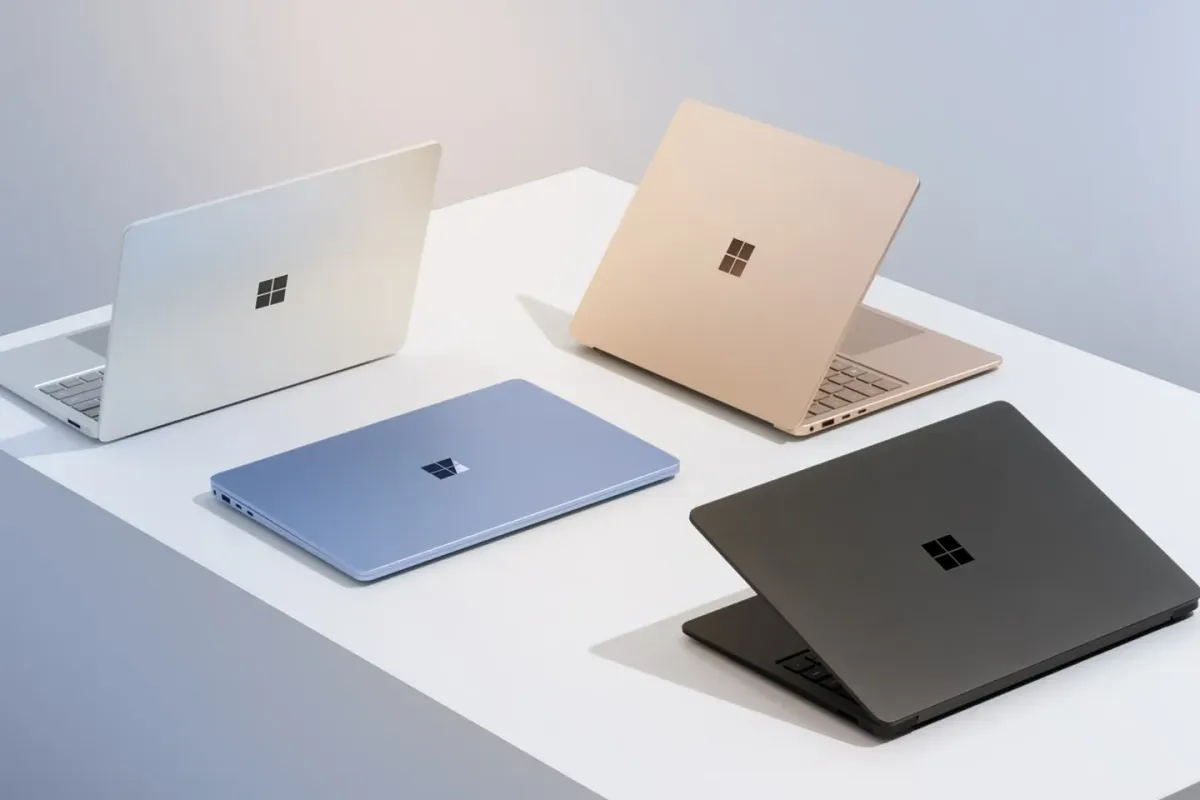Microsoft AI Silicon Powered by Qualcomm Snapdragon X Elite
/cdn.vox-cdn.com/uploads/chorus_asset/file/19249909/akrales_190930_3688_0196.jpg)
Tom Warren has a new newsletter called Notepad, the first edition hit yesterday and it's perfectly timed ahead of Microsoft's major announcements next week: a Surface/Windows AI event on Monday and their Build conference starting on Tuesday. (Also smart of The Verge to offer a bundle – how streaming service of them – of Warren's Notepad alongside Alex Heath's great Command Line.)
I’m told Microsoft has full confidence that Qualcomm’s upcoming Snapdragon X Elite processors will begin a new era for Windows laptops. Microsoft seems to be betting on this being as big of a moment as when Apple launched its first Arm-based laptop chips in 2020.
I'm quite skeptical of this for all the obvious reasons. Namely, we've heard this story before. To be fair, that was from Intel, which Microsoft is leaving behind here (though not completely) in favor of Qualcomm. But to state the obvious: a large part of the success behind Apple Silicon has been the Apple part – this was an in-house project which Apple built through some smart acquisitions back in the day. Microsoft is still outsourcing this. Perhaps not forever, but for now.
It seems as if Qualcomm made their own smart acquisition – of ex-Apple Silicon talent, naturally – but they're still not in-house at Microsoft. They undoubtedly worked as closely as possible. But Microsoft was also doing that with Intel for years – they didn't call it "Wintel" for nothing. This is just going to have to be something both sides prove before we can trust any of this.
But it is interesting how confident Warren's sources inside Microsoft sound about this collaboration. The key thing to watch/listen for: performance and efficiency. Intel touted the former but missed the boat on the latter. It's already been proven that you can beat Apple Silicon in pure performance if you don't care about energy usage, but that has been Apple's actual secret sauce. It's not just that M1/M2/M3 MacBooks are fast, it's that they're fast and run cool, seemingly forever. Contrast this with the end of Apple's collaboration with Intel, where my legs were constantly being cooked as if trying to finally, truly blur the line between "hot dogs or legs?"
Apple has been touting performance-per-watt with their chips from the get-go. And again, Intel missed that part of the memo. I suspect Microsoft/Qualcomm will not, but it may take a bit to see how they truly stack up in real world usage.
Will there be... compromises?
Also, Apple just quasi-surprise dropped the M4 chip. It will be interesting to see if that's a point of comparison here, or if they stick to MacBook chips, which still means the M3. This also, of course, isn't the first go-around with Microsoft and the ARM architecture for their devices:
Microsoft has tried to transition to Arm — and the battery-life benefits that come along with it — for years without much success. It all started with the Surface RT in 2012. Its performance was far behind Intel-based tablets and laptops, and its desktop mode couldn’t use most traditional Windows apps. That effort quickly failed, but Microsoft returned to try transitioning to Arm again in 2018 with Qualcomm devices and then with the launch of the Surface Pro X a year later. That device was certainly better, but it still had app compatibility issues, performance wasn’t close to a regular laptop, and it was super expensive.
I reviewed the Surface RT back in 2012. The verdict? Trash can-worthy.
One more thing: AI AI AI AI AI AI AI...
The NPU, a dedicated processor designed to accelerate AI tasks, will help unlock features inside Windows that will only be available on devices that have these new and more powerful chips. Microsoft has been secretly working on a range of AI features, including a flagship one codenamed AI Explorer. Described internally as a way to let you “retrieve anything you’ve ever seen or done on your device,” this feature will use AI to capture everything you do and look at on your PC so you can perform “Recall” actions.
This will make everything you do on your PC searchable. The way sources have described this feature to me is that if you saw an image of an elephant a couple of weeks ago but you can’t remember where from, you just ask AI Explorer to bring that memory back to life, and it’ll show you the exact time you saw it and the context. So if you’ve been working with a colleague and discussing a project, you could look at a snapshot of that moment to remember what you were working on and discussing. This idea of recalling memories and snapshots from a period of time is a key part of how AI Explorer works.
This, I'm much more confident in. I think this is exactly the type of thing that Microsoft, as an OS-maker should be doing. As Warren notes, the startup Rewind (which is now actually Limitless, makers of that interesting new AI pendant) has been doing this. But a third-party is never going to be able to do this to extent that the OS itself can. Not to mention the security concerns – which maybe Microsoft won't actually be better to address anyway! It's why I suspect Apple may be cooking up something similar as a part of its AI story.
Update May 20, 2024: And here are the announcements....



